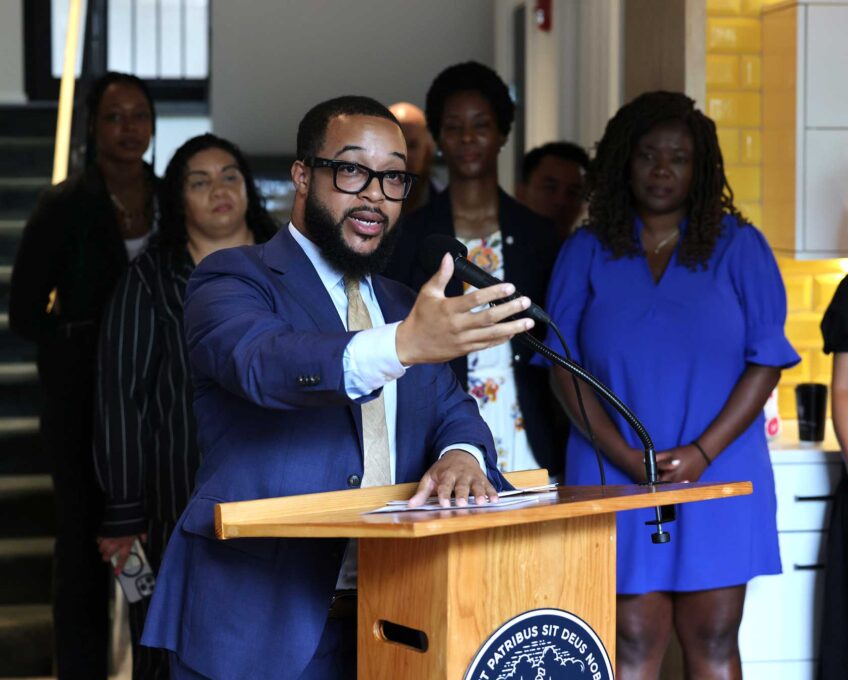
Banner Business Sponsored by The Boston Foundation
For many industries, business slows down during the summer. This makes it the perfect time for people to start work routines that can help them to personally and professionally thrive, routines they can carry with them into the new school or fiscal year.
As emergency medicine physicians, we’ve learned that every big goal, complicated task and healthy habit can be broken down into small, learnable skills that can be practiced and incorporated in real-time. We call them MicroSkills — and we want to encourage you to make the most of your slower summer days by learning and applying them. MicroSkills can help you reimagine:
How you use email: Summer is a great time to establish a compassionate email culture. Try writing emails when it’s convenient for you (e.g., after the kids go to sleep), however, schedule them to send during working hours so you protect the off-hours time of the recipient. In kind, they’ll most likely reply during the workday.
How you rest: We understand that work does not go away completely during the summer for most of us. However, it’s a great opportunity to adopt a mindset to practice deliberate rest. Deliberate rest is not scrolling through social media or Netflix after your shift ends. It means truly allowing your mind, body and soul to replenish. This might be going for a bike ride, sitting in silence, enjoying a good meal with a friend or even gardening.
How you network: If your office closes early on Fridays, kick the weekend off by a walk or lunch with someone new, e.g., from another department or division. Networking need not just be about sharing project plans and ideas. Networking also means nurturing relationships with people over shared interests. Start by asking, “What are you looking forward to most this summer?”
How you hold meetings: Set limits on time spent in meetings. Trim one-hour meetings to 45 minutes, half-hour meetings to 20. Set aside a limited number of hours per week for meetings and, when the slots are full, no more non-urgent meetings for the week. Even consider alternatives to meetings, like shared documents stored in the cloud and audio texting. When you do have to have a meeting, make sure that key decisionmakers are present. If you’re management, consider establishing a “no meetings on Fridays” rule. If people like it, make this a year-round habit.
How you seek career advice: Practice asking for focused feedback: “What is one part of my presentation that stuck with you?” “What is one part I can leave out next time?” Grow your personal board of directors — people you trust (peers, colleagues, friends) who can help you assess your professional strengths as well as your areas for growth. People may be less busy in the summer and have more time for you.
How you develop expertise: Summer is a great time to learn new skills and deepen an interest in a topic. Push yourself toward expertise on any work-related topic, from brushing up on your Excel spreadsheet skills to learning more about balancing budgets. Identify the gaps you have and seek to fill. Try to find creative and engaging ways to learn. Taking live courses will help you meet others with similar interests, but you may also join niche groups on Facebook or LinkedIn. Books and online videos should cover a lot of core content on the topic.
How you show your brand: As a working professional, you have a skill set or lived experience you can teach others. It may be content related to your field of practice or it may just be your perspective on work and life. If motivated to do so, start with a small personal website or a social media account. It’s the summer, so we don’t want to add too much pressure. However, slowly build your brand so you are ready for fall, when work picks back up.
How you commit: Do you pause before accepting an opportunity? Are the projects you’re working on promotable — meaning ones that will help you grow and advance toward the next stage or position? Are there tasks you could take off your plate? Is guilt keeping you on projects which bring no joy? Before saying “yes,” take a moment — an hour, a day, a week — to consider it. Learn to celebrate the joy of missing out (JOMO) — fewer emails, fewer meetings and deadlines, and more time to enjoy your summer!
Adaira Landry, MD, MEd, is an assistant professor of emergency medicine at Harvard Medical School and Brigham and Women’s Hospital and co-founder of WritingInColor.org. Resa E. Lewiss, MD, is a professor of emergency medicine at the University of Alabama at Birmingham and creator/host of The Visible Voices podcast.






